An Investigation of Student Workers at Cornell
Fall 2022
A half-semester-long project/art research project that focuses on how people view working life, wages, stress, school, and labor at an Ivy League Institution, Cornell University. All the voices and people in the video are anonymous and are part of the Cornell Industrial and Labor Relations School.
"It all started when I noticed my friend, Emily Hernandez, had a 4:45-9:00 pm shift on a weekend night. I also knew she was already working at a supply store in our Architecture, Arts, and Planning college...Something was odd about that. I decided to live in Emily’s shoes for the day and work a Saturday night shift with her unpaid, where we worked the entire shift together. There I got to see the excellent staff at Cornell Dining and the people I sincerely wanted to represent and highlight. I talked to the full-time staff and engaged in conversation about working with Cornell as an institution. Some full-time workers brought up the discussion of wages and that they felt they would like to be paid more. They also mentioned that students are expected to work as full-time workers because of the lack of people wanting to work certain hours at Cornell Dining.
Thus, it spurred the conversation of wages, time, and labor within the student perspective at Cornell. I didn’t want to say “working at Cornell is bad” because many people enjoy working here...but there are exceptions. I talked to Emily, and we both concluded that working is like a cycle and that sometimes people in certain conditions, such as lower social-economic status, may be taken advantage of by their positions in life. Cornell doesn’t need to compete with the labor market because they offer the prestige and benefits of an Ivy League Institution. However, this is only the case for students. I cannot express the opinions of full-time workers who need more support economically. Therefore, interviewing the people in ILR (Cornell’s Industrial and Labor Relations School) who advocate for workers’ rights is fitting to gain a more retrospective opinion on labor. Should we raise the wages? Is the student contribution manageable, or does it lead to equity/ethical issues by taking advantage of students? Opinions on labor? These are all the questions I asked the students, wondering if my perspective was too biased." (Savannah Flores).
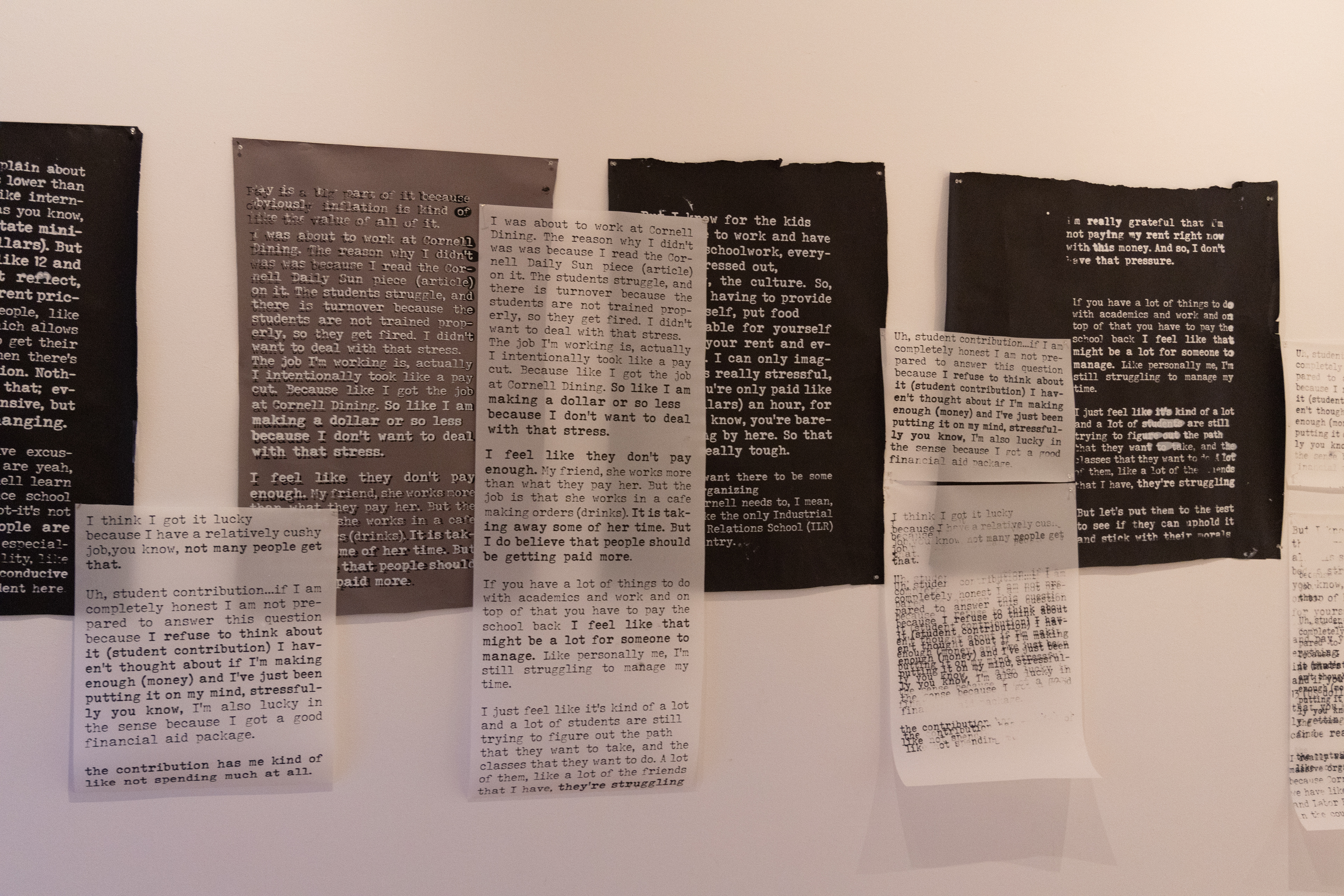
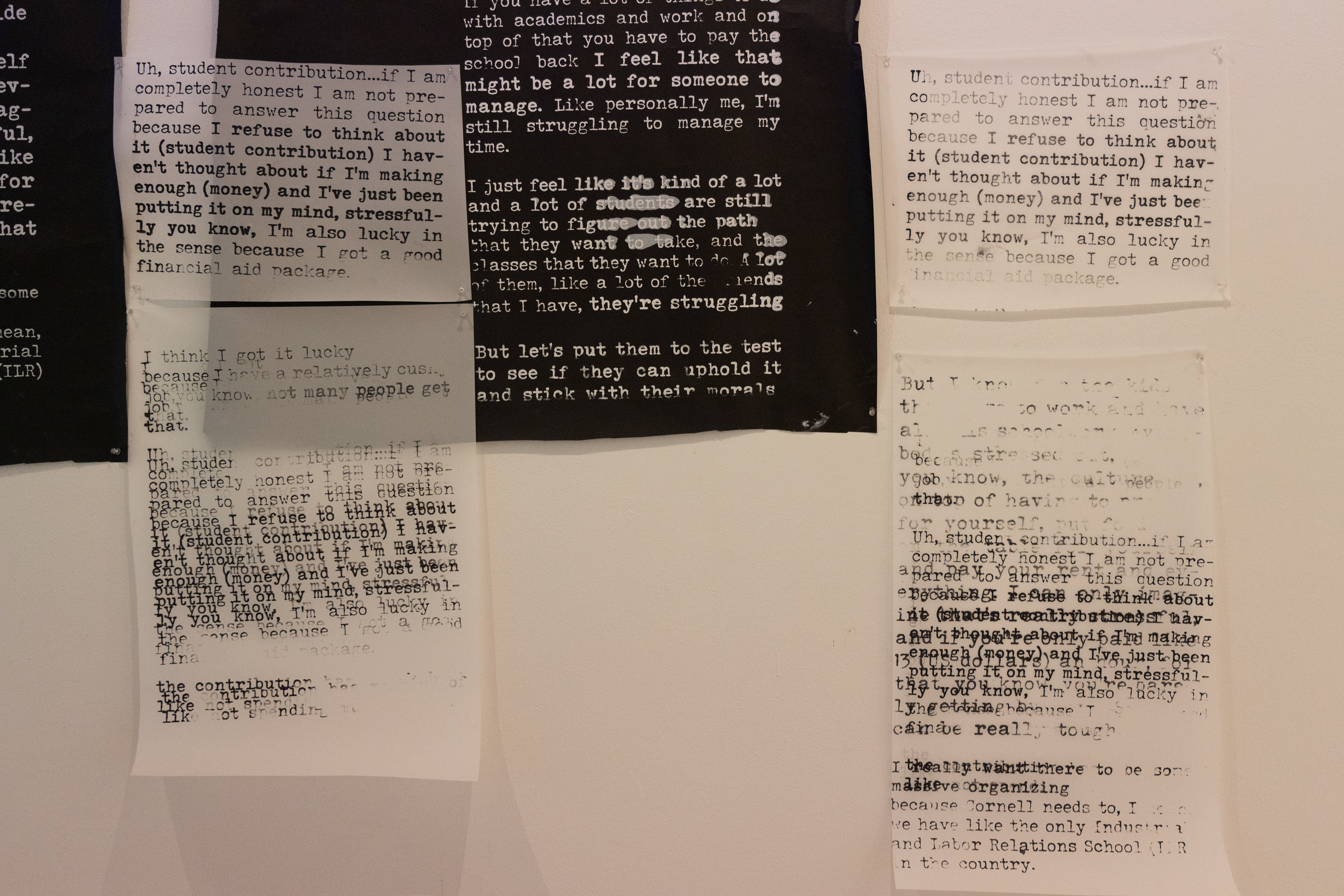
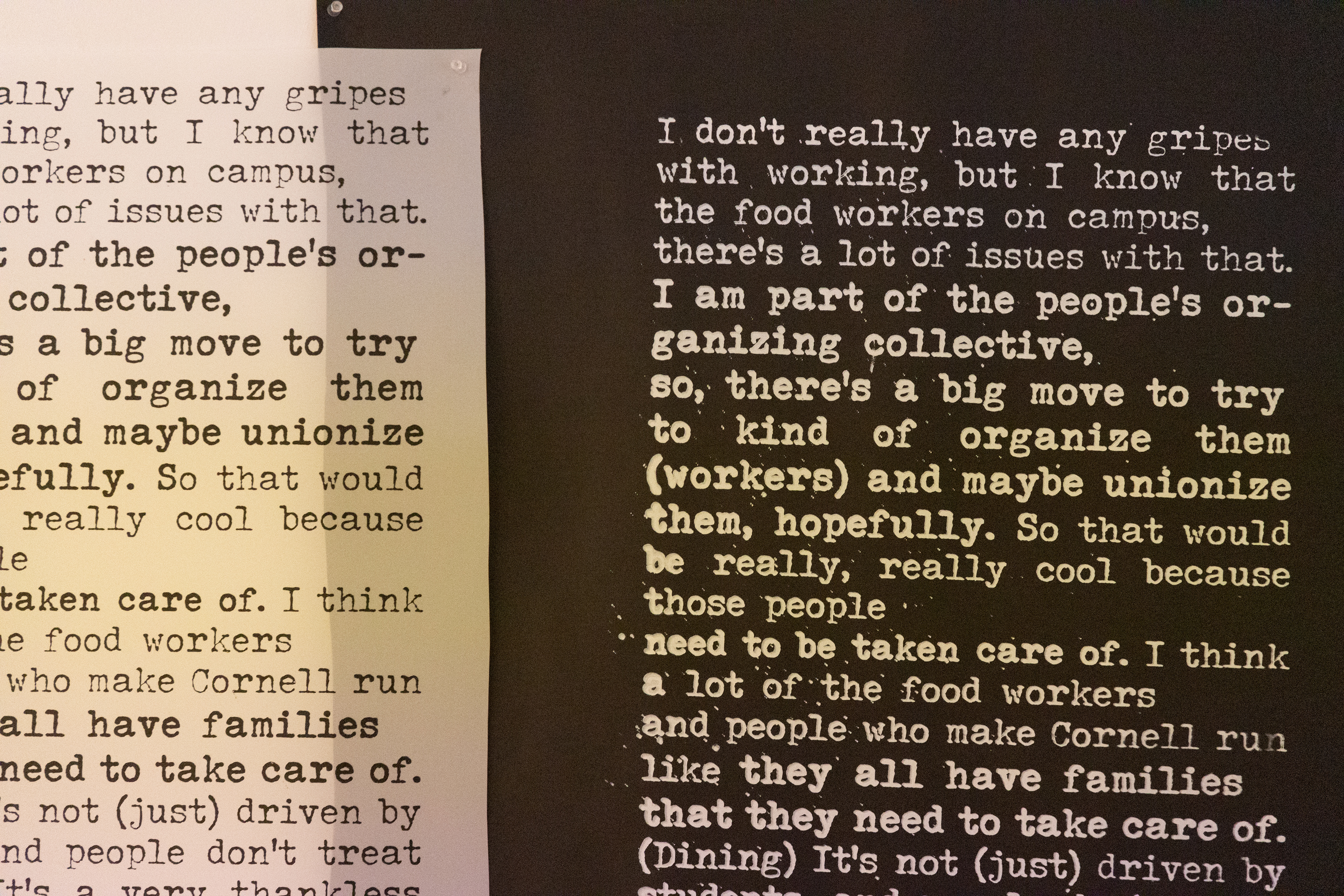
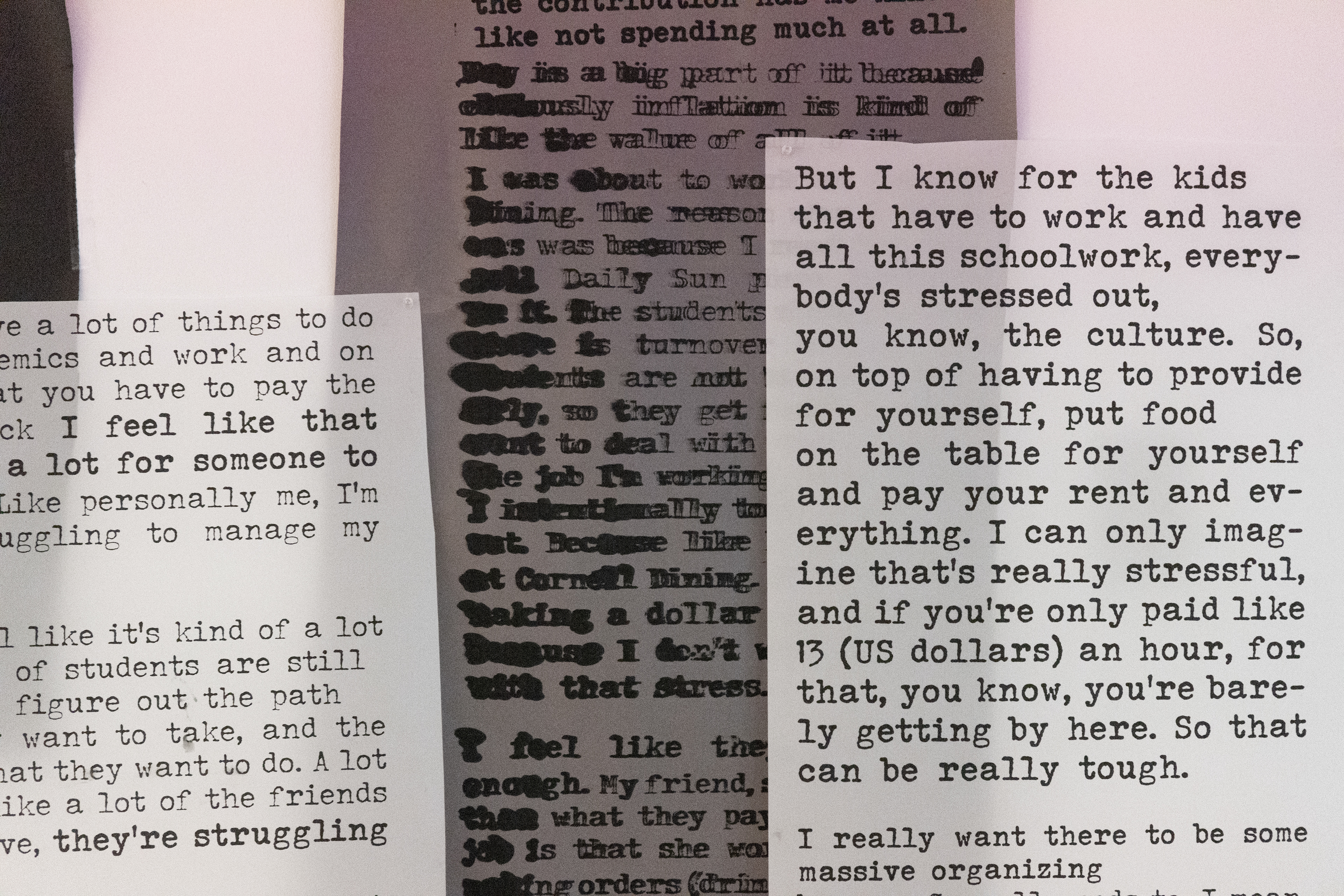
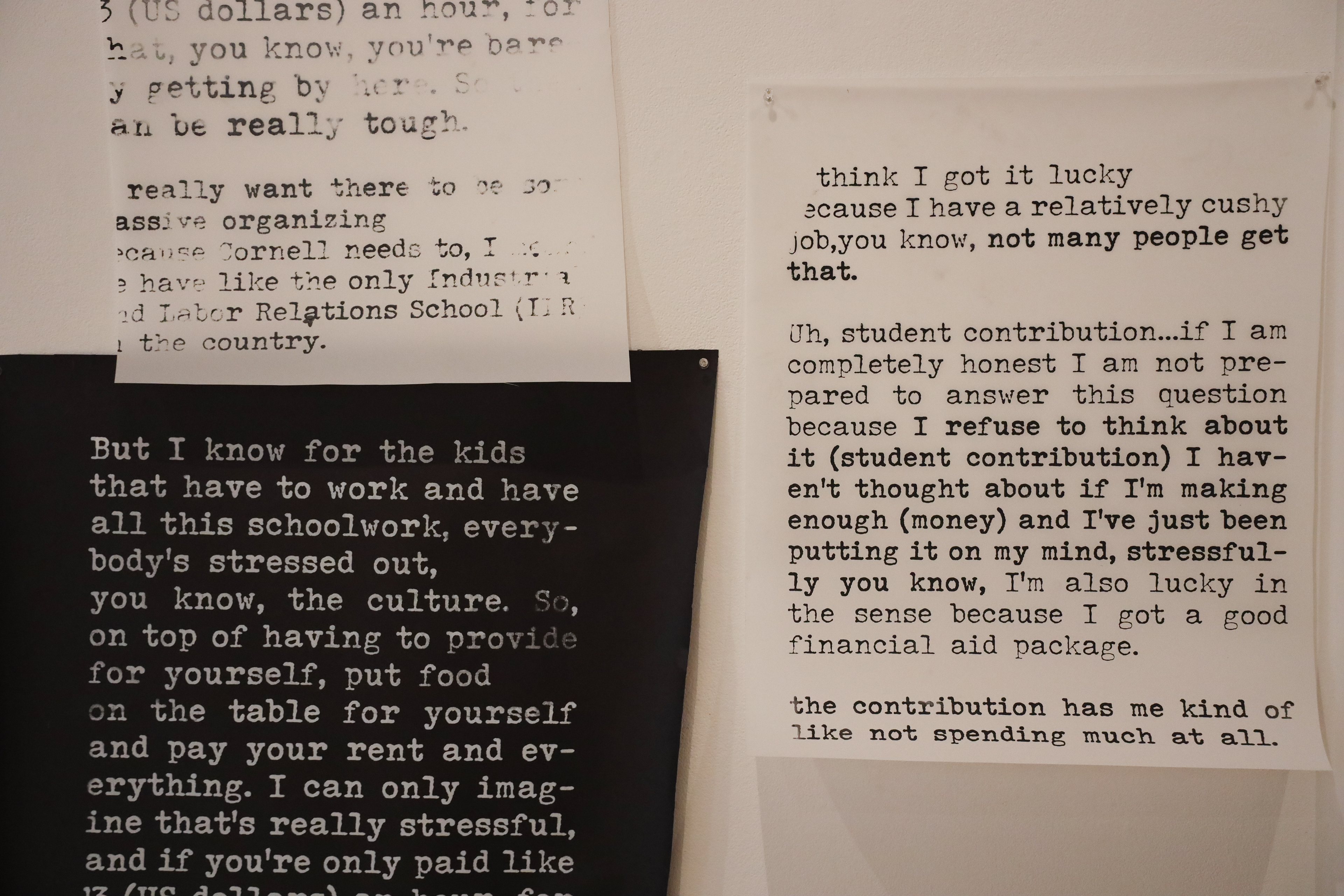
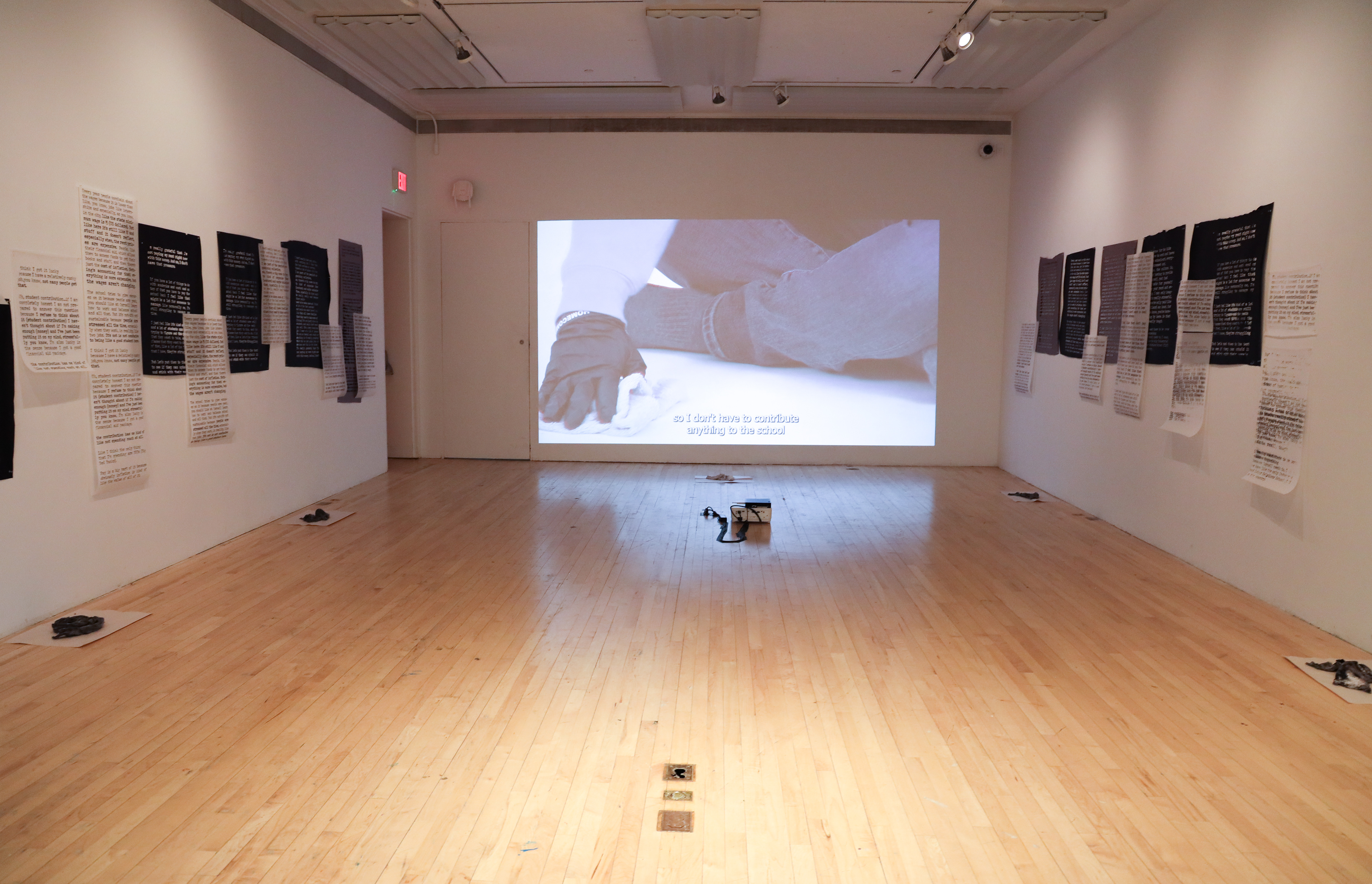
https://savannahflores49077300.wordpress.com/







